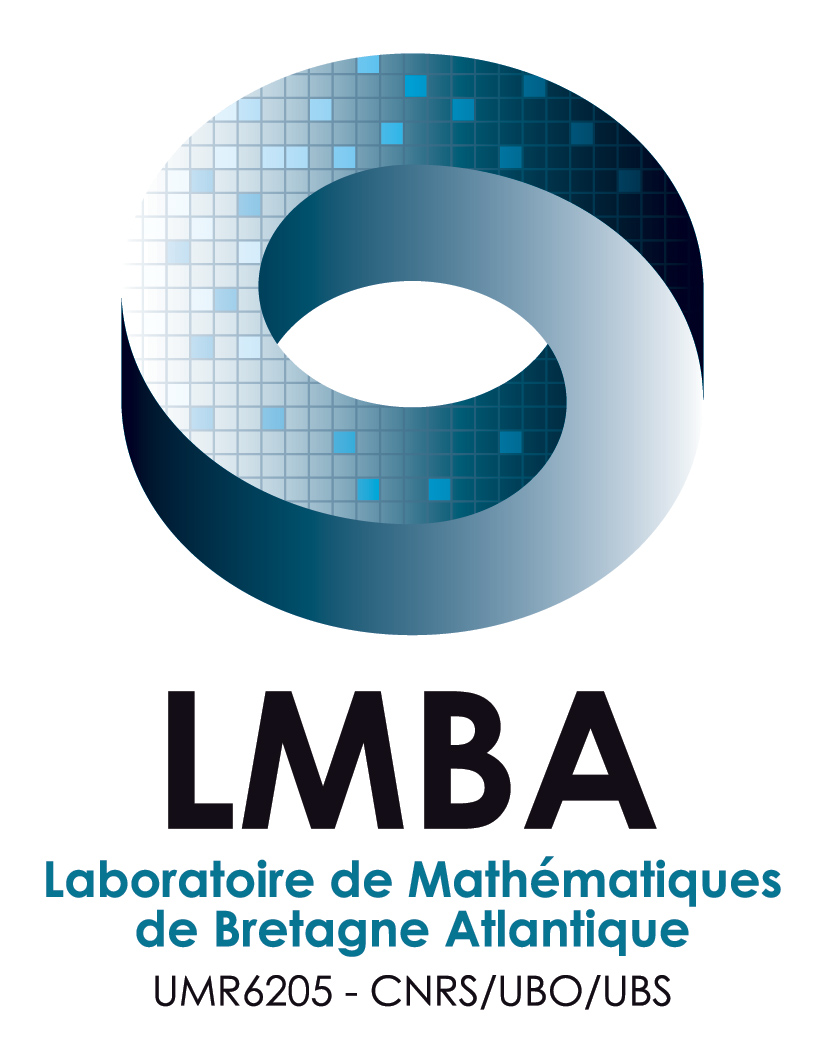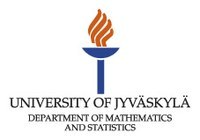









International Seminar on SDEs and Related Topics
Schedule 2021 Autumn
Oct 29, 2021
Peter Friz (TU Berlin and WIAS Berlin): Poster:Abstract: A hybrid theory of rough stochastic analysis is built that seamlessly combines the advantages of both Itô's stochastic - and Lyons' rough differential equations. A major role is played by a new stochastic variant of controlled rough paths spaces, with norms that reflect some generalized stochastic sewing lemma, and which may prove useful whenever rough paths and Itô integration meet. We will mentioned several applications. Joint work with Antoine Hocquet and Khoa Lê (both TU Berlin).
Nov 12, 2021
Xunyu Zhou (Columbia University, New York): Poster:A Martingale Lens
Abstract: We propose a unified framework to study policy evaluation (PE) and the associated temporal difference (TD) methods for reinforcement learning in continuous time and space. Mathematically, PE is to devise a data-driven Feynman--Kac formula without knowing any coefficients of a PDE. We show that this problem is equivalent to maintaining the martingale condition of a process. From this perspective, we present two methods for designing PE algorithms. The first one, using a "martingale loss function", interprets the classical gradient Monte-Carlo algorithm. The second method is based on a system of equations called the "martingale orthogonality conditions". Solving these equations in different ways recovers various classical TD algorithms, such as TD, LSTD, and GTD. We apply these results to option pricing and portfolio selection. This is joint work with Yanwei Jia.
Nov 26, 2021
Michael Scheutzow Poster:(Technische Universität Berlin):
Abstract: We provide an introduction to generalized couplings and present a recent result [contained in S.: Couplings,
generalized couplings and uniqueness of invariant measures. ECP, 2020] which says that the existence of a generalized coupling
for a Markov chain implies uniqueness of an invariant probability measure even if
the state space is just a metric space without requiring separability or completeness as in previous works. The proof turns out to be
rather elementary. We show how this result can be applied to show uniqueness of an invariant measure for
the solution process of a stochastic functional differential equation (SFDE) and we show how generalized couplings can be employed
to show weak uniqueness of solutions of an SFDE with Hölder continuous coefficients.
Parts of the talk are based on joint work with Alex Kulik (Wroclaw).
Dec 10, 2021
Nizar Touzi Poster:(CMAP & Polytechnique Paris):
Abstract: The problem of optimal planning was introduced by P.-L. Lions in the context of a mean field game, by fixing a target distribution in the Focker-Planck equation and relaxing the boundary condition in the HJB equation. We analyze an extension of this problem to the path-dependent setting which has remarkable connections with optimal transport and optimal incentive theory in economics. We provide a general characterization of mean field optimal planning solutions, and we solve explicitly the minimum entropy optimal planning problem.
Schedule 2022 Spring
Jan 14, 2022
Arturo Kohatsu-Higa Poster:(Ritsumeikan University, Kusatsu):
Abstract: Recently, I have been interested in how acceleration of approximation methods can be used in order to derive theoretical properties about the laws of their
limits. In most situations, numerical approximations do not have good properties to assure that their properties transfer to their limit laws. In this talk, I will give two examples
with different acceleration techniques. In the first, we will consider a jump driven sde with purely atomic Lévy measure with infinite activity. We will apply the Asmussen-Rosinki
approximation for small jumps of infinite activity Lévy processes and argue that the use of this approximation in order to derive properties of the limits is not possible. Instead,
we will combine this method with the moment method in order to improve the approximation and finally obtain results on the regularity of the laws of stochastic differential
equations with jumps. This approach is interesting as it only uses Malliavin calculus with respect to the Brownian motion associated to the Asmussen-Rosinki approach. This
is joint work with V. Bally and L. Caramellino.
In a second part, we will discuss how to obtain optimal upper bounds for the joint density of a stable process and its supremum using Multi-level Monte Carlo method
techniques. We build an ad-hoc Malliavin Calculus method based on the Chamber-Mallows-Struck/Kanter simulation approach for stable increments.
This is joint work with Jorge Gonzales-Cazares and Alex Mijatovic.
Jan 28, 2022
Denis Talay Poster:(INRIA & École Polytechnique):
First hitting time Laplace transforms of solutions of SDEs are Lipschitz continuous in the Hurst parameter of the driving fractional Brownian noise
Abstract: Sensitivity analysis w.r.t. the long-range/memory noise parameter for
probability distributions of functionals of solutions to stochastic
differential equations is an important stochastic modeling issue in many
applications.
In this talk we consider solutions {XtH} t ∈ R+ to stochastic
differential equations driven
by fractional Brownian motions. We examine Laplace transforms of
functionals which are
irregular with regard to Malliavin calculus, namely, first passage times
of X H at a given threshold.
We will present parts of the machinery necessary to prove the Lipschitz
continuity w.r.t. H around the value ½. This result
implies that, for applications where first hitting times are a crucial
information,
the Markov Brownian model is a good proxy model as long as the Hurst
parameter remains close to ½.
This is joint work with Alexandre Richard (Ecole Centrale-Supelec, France).
Feb 11, 2022
Mireille Bossy Poster:(INRIA, Université Côte d'Azur, France):
Weak convergence rate approximation for some SDEs with superlinear growth coefficients
Abstract: In this talk, I would like to discuss around the approximation of the solution of the following class of 1D-SDEs
dXt = b(Xt )dt + σ Xt α dWt , X0 =x>0,
when α >1.
I will first present some motivating examples where such SDEs arise in modelling approaches, as long-time limit approximation of McKean SDEs
of CIR-type for the amplitude of local wind fluctuations. Of course, a priori knowledge on such SDEs about the
conditions on the coefficients ensuring well-posedness and some control on the moments is required, not only for their use as models
but also to study the convergence of time-integration schemes.
Here, we focus on the weak convergence rate. First, a set of conditions for the C1,4 regularity of the Feynman-Kac formula
is proposed using stochastic tools. While direct derivation of the Feynman-Kac formula requires some smoothness for the drift b, we show how
to avoid the costly control of the moments of the successive derivatives of the flow process by using a change of measure technique, allowing b to be
taken superlinear too. We then introduce an exponential scheme for the time integration of the SDE, which reproduces well the control of the moments of the
exact process and for which we prove a convergence rate of order one.
This talk is based on two recent papers with Kerlyns Martínez Rodríguez (University of Vaparaíso) and Jean Francois Jabir (HSE University Moscow).
Feb 25, 2022 @ 12:30 UTC, one hour later than usual!
Xin Guo Poster:(University of California at Berkeley):
Generative adversarial models: an analytical perspective
Abstract: Recently, the popularity and successes of Generative Adversarial Networks (GANs) in computer vision and image generation have attracted intense
attention from the mathematical finance community. GANs have since then been applied to financial data generation and lately shown capable of computing
solutions for high dimensional mean-field games.
In this talk, we will discuss the connection of GANs with optimal transport, game structure of GANs in an SDE framework, and present our latest work
on the stochastic control approach for the stability of GANs training.
Based on joint work with Haoyang Cao of Ecole Polytechnique, and Othmane Mounjid of UC Berkeley.
Mar 11, 2022
Lukasz Szpruch Poster:(University of Edinburgh):
Gradient Flows for Regularized Stochastic Control Problems
Abstract: We study stochastic control problems regularized by the relative entropy, where the action
space is the space of measures. By exploiting the Pontryagin optimality principle, we identify a suitable metric
space on which we construct the gradient flow for the measure-valued control process along which the cost functional
is guaranteed to decrease.
It is shown that under appropriate conditions, this gradient flow has an invariant measure
which is the optimal control for the regularized stochastic control problem. If the problem we work with is sufficiently
convex, the gradient flow converges exponentially fast. Furthermore, the optimal measure valued control admits Bayesian
interpretation which means that one can incorporate prior knowledge when solving the stochastic control problem.
This work
is motivated by a desire to extend the theoretical underpinning for the convergence of stochastic gradient type algorithms widely
used in the reinforcement learning community to solve control problems.
Mar 25, 2022 @ 12:30 UTC, one hour later than usual!
Jianfeng Zhang Poster:(University of Southern California):
Propagation of Monotonicity for Mean Field Game Master Equations
Abstract: It is well known in the mean field game literature that a certain monotonicity condition is crucial for the uniqueness of mean field equilibria and for the wellposedness of the associated master equation. One interesting observation is that the propagation of the monotonicity (either in Lasry-Lions sense or in displacement sense) of the value function plays the key role here. We shall introduce a method to find conditions on the coefficients which ensure that any solution of the master equation will maintain the monotonicity property. This method also allows us to consider anti-monotonicity and obtain the desired wellposedness provided the coefficients are sufficient anti-monotone in appropriate sense. We finally extend our results to mean field games of controls. The talk is based on a joint work with Gangbo-Meszaros-Mou and two joint works with Mou.
Apr 08, 2022
Krzysztof Bogdan Poster:(Wrocław University of Science and Technology):
Self-similar solution for Hardy operator
Abstract: We will discuss the large-time asymptotics of solutions to the heat equation for the fractional Laplacian with added subcritical or even critical Hardy-type potential. The asymptotics is governed by a self-similar solution of the equation, obtained as a normalized limit at the origin of the kernel of the corresponding Feynman-Kac semigroup. This will be our focus. Interestingly, an Ornstein-Uhlenbeck semigroup turns out to be an important tool for the analysis. The paper is on arXiv and it is joint work with P. Kim (Seoul), T. Jakubowski, and D. Pilarczyk (Wrocław).
Apr 22, 2022
Étienne Pardoux Poster:(Aix-Marseille Université):
Epidemic models with varying infectivity and varying susceptibility
Abstract: Almost a century ago, Kermack and McKendrick suggested to take into account the fact that the infectivity of infectious individuals vary with the time
elapsed since their infection, the duration of the infectious period can have a very general distribution, and in case of loss of immunity, it is progressive.
Unfortunately, almost all the literature on mathematical models of epidemics concentrate on simpler ODE models, which are the law of large numbers limits, as the size
of the population tends to infinity, of finite population stochastic Markovian models.
We consider the models suggested by Kermack and McKendrick, and obtain those models (or in one case a generalization of their model), which are convolution type
equations, as law of large numbers limits of general non Markov stochastic finite population models. We also derive some associated Central Limit Theorems. Our
approach involves the study of a class of mean field Poisson driven SDEs.
This is joint work with Guodong Pang, Raphaël Forien and Arsene Brice Zotsa-Ngoufack.
May 06, 2022
François Delarue Poster:(Université Côte d’Azur, Nice):
Weak solutions to the master equation of potential mean field games
Abstract: The talk is motivated by the theory of mean field games, initiated by Lasry and Lions and by Caines, Huang and Malhamé. The very purpose of it is to address the so-called master equation, which describes the value of the game, when equilibria may not be unique. In order to do so, we restrict ourselves to a class of mean field games that coincide with the first order condition of an optimal control problem set over McKean-Vlasov dynamics. Such games are called potential. We then introduce a notion of weak solution to the master equation and prove that existence and uniqueness hold under quite general assumptions. The key point is to interpret the master equation in a conservative sense and then to adapt to the infinite dimensional setting earlier arguments for hyperbolic systems deriving from a Hamilton-Jacobi-Bellman equation. This a joint work with Alekos Cecchin (Padova, Italy), see arXiv 2204.04315
May 20, 2022
Ying Hu Poster:(Université de Rennes 1, CNRS):
Abstract: The aim of this talk is to give some well-posedness results for scalar valued Backward Stochastic Differential Equations (BSDEs) when the generator has a sublinear growth, superlinear growth, subquadratic growth in the second variable. In each of these cases, we give some precise conditions for terminal random variables to guarantee the existence and uniqueness of the solution. Joint works with Shengjun Fan and Shanjian Tang.